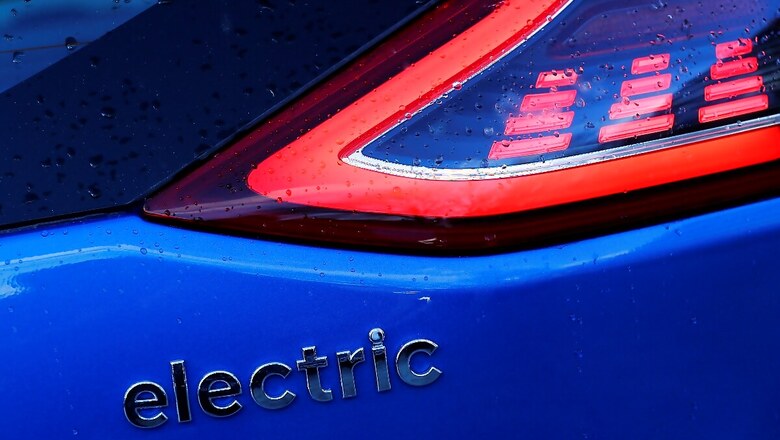
views
Electric vehicles (EV) deployed in Delhi have clocked 2 crore kilometres as per Convergence Energy Services Ltd (CESL).
As per a statement released by the company, this has resulted in a reduction of 500 kilograms of particulate matter emissions, contributing significantly to cleaner air and health benefits for the public. About 3573 tonne carbon emission has been avoided, since the day of deployment of EVs, and Rs 8.6 crore have been saved in terms of monetary value. The 2-crore e-kilometres also contributes to 13.3 lakh litres saving in fuel consumption. A total of 565 CESL EVs are running in the national capital region with more and more consumers being encouraged to switch to EVs. There has been a rise of more than 140% YoY in sales of electric cars that shows the gradual acceptance of the technology among the climate conscious, adds the statement.
Delhi has become the EV hub of India, accounting for half of the total ‘electric-kilometres’ in India. The government of India is the biggest demand generator with most ministries, government companies and other agencies converting at least some part of their fleet into electric.
Mahua Acharya, MD & CEO of Convergence Energy Services Limited (CESL), said, “Demand for EVs is increasing rapidly and the 2-crore kilometres milestone is testimony to this. This is an important step towards India building out an ecosystem for electric mobility. CESL is bringing together initiatives to invest in clean energy and clean transportation, and our planned investments in 20,000 electric vehicles, India is expected to save over 6.4 crore litres of fuel every year leading to a reduction of over 5.6 lakh tonnes of annual CO2 emissions.”
The adoption of electric vehicles in India is being encouraged by the Government with a target to reach 30% by 2030. As per the Government of India (GoI), 70 percent of all commercial cars, 30 percent of private cars, 40 percent of buses, and 80 percent of two-wheeler (2W) and three-wheeler (3W) sales, in total at least 30% of entire vehicle population by 2030 would be electric. In support of this policy goal, the GoI has taken several steps to incentivise 2 and 3-wheeler EVs, shared mobility and public transport by offering capital subsidies and tax incentives. Rs. 1000 crore has been allocated to provide up to 70% capital subsidy for public charging stations (PCS). The Government has also clarified that setting up of PCS and charging EVs is a “delicensed” activity – an important step towards unleashing private enterprise and innovation. Special tariffs have also been issued by many states. Delhi has a target of 25% EVs for all new vehicle registrations by 2024.
Also Watch:
Convergence Energy Services Limited (CESL) is a newly established 100% subsidiary of state-owned Energy Efficiency Services Limited (EESL), who has taken the lead in electric mobility by deploying 1500 electric vehicles and over 1000 charging stations. With the help of the national government subsidy, the aim is to reach 10,000 charging stations in three years.
Read all the Latest News, Breaking News and Coronavirus News here




















Comments
0 comment